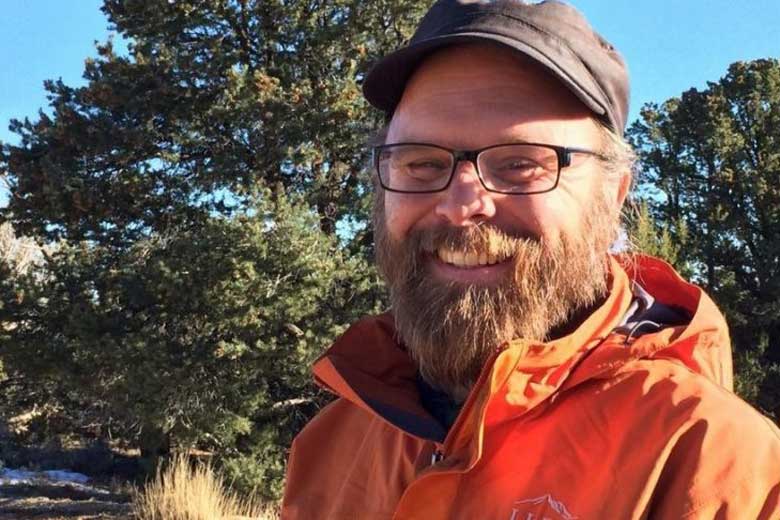Leviticus On Partial Truths

Parasha for the Last Day of Pesach
A fire and brimstone Christian preacher once taught me that the cunning of the snake in Eden was his mastery of “half-truths.” He knew he could hook Eve by saying of the fruit of the forbidden tree, “You will not ‘surely die’— – God knows that on the day you eat of its fruit, your eyes will be opened and you will become like one of the Divine Powers, knowing good and evil.”
“It’s true!” the preacher ranted. “They did not physically die for eating the fruit. But spiritually they were dead. Dead as doornails.” This is the power of deception, he maintained: to speak in half-truths; partial truths have power.
In the Pesach Haggada, we sing, “This is the bread of poverty … let all who are hungry come and eat.” There is an inner tension in this song. Is this truly an invitation to all who are hungry? Or is it merely aspiration?
It is said of Rav Huna (Talmud Bavli, Taanit 20b), that when sitting down to a meal, he would open his door and cry out, “Whoever needs to eat, come and eat!” Rava, hearing this anecdote from a student of Rav Huna, responded that he could not emulate this behavior. “There are a great many poor people [in this town] and I could not feed them all.” So, too, our recitation of “let all who are hungry” is not entirely an invitation, nor is it merely aspiration.
In a similar vein, a dynamic tension exists in the Torah reading on Shabbat, the last day of Pesach. In one verse, we chant (Deut. 15:4-5), “There shall be no needy among you—since Hashem your God will bless you in the land that Hashem your God is giving you as a hereditary portion—if only you heed Hashem your God and take care to keep all this Instruction [Torah] that I enjoin upon you this day.” Only a few verses later, we hear the Instructor saying (Deut 15:11), “For there will never cease to be needy ones in your land, which is why I command you: open your hand to the poor and needy kinsman in your land.”
The contradiction drives our questions. Each statement is only partially true; each is the seduction of the serpent, “You will not surely die … rather you will become like one of the Divine Powers, knowing good and evil.”
A partial truth is dynamic; the false part and the true part are in tension with each other. A partial truth is a bow drawn back; there is energy and potential in the “half-truth.” And … there is great danger. We are terribly attracted to partial truths; their magnetism draws us in.
And yet, there may be some sense in our kishkes that all is not as it seems. We sense something untrue or incomplete. Something inauthentic. In some cases, an individual will force themselves to ignore that niggling conscience, the inner compass that cries out in a still, small voice (I Kings 19:12-13), “What are you doing here, Elijah?” We are captivated, motivated, and inspired by those forces created through dynamic tension: a raging wind, an earthquake, fire. But that still, small voice that asks us, “What are you doing here, Elijah?” —this voice is much less dynamic, it would seem. It is thus often tuned out, drowned out, unperceived. Yet it is there, creating within us a dynamic tension that sympathetically resonates with the vibration of a partial truth. We feel, if we are paying attention, the energy of the bow drawn back with in us: our imagination storming and our still, small voice … niggling.
Our Rabbinical School of Hebrew College teacher (and now Hebrew College President-Elect), Rabbi Sharon Cohen Anisfeld, once told us that the art of composing a very careful devar Torah is listening for, and paying attention to, that niggling voice. “Something is not quite right,” it says. The danger is that we ignore this sacred voice, that we ignore the dynamic tension of a partial truth: part of it is not true.
We idealists peddle partial truths. We—serpents who are both inspired and seek to inspire—say things like “There should be no poor in our lands,” but we know: “There will always be the poor in our lands.” Why? Because “There are a great many poor people in our lands, and I can not feed them all.”
The Jewish tradition, as modeled by our Rabbinical School of Hebrew College teacher Rabbi Art Green, is to say with regard to sacred contradictions, “Nu? Which is it?” And respond, “The answer is, of course, ‘Yes.’”
There is nothing trite about this answer. So, too, there is nothing trite about saying, “These and those are the words of the living God” or “There are seventy faces of Torah.” It is to acknowledge the limits of knowledge. It is not merely to say, “There are two sides to every coin.” Rather it is to admit, and honor, the dynamic of the half-truth. In the average proverb or axiom or “truth” lies the potential for creation and destruction, for good and evil. To admit the limitations of our knowing is to express love and caring for the effect of our half-truths; it is, I hope, to take responsibility for the power of the half-truth.
Rabbi Elisha Herb serves the community of Temple Beth Sholom in Salem, Oregon. A 2016 graduate of the Rabbinical School of Hebrew College, he is also a wilderness river guide for the Four Corners School of Outdoor Education in Monticello, Utah.
Interested in a possible career in the rabbinate? Read Rabbi Dan Judson’s article “Jewish Lessons on Meaningful Work.” Rabbi Judson is Dean of the Rabbinical School of Hebrew College. He has a PhD in Jewish history from Brandeis University.

